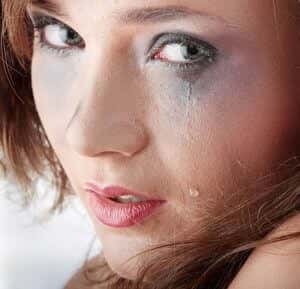
Are you suffering from seasonal affective disorder (SAD)? Many people feel down when the weather gets bad, the days become short and they can no longer get as much sunshine on their face. Now add the pandemic and social isolation and you have a recipe for depression. Was SAD solved with a combination of an antidepressant and a light box? This reader says yes! There was an odd bonus: alcohol lost its appeal.
Wellbutrin Plus Light: SAD Solved!
Q. I wanted to share my experience with seasonal affective disorder (SAD) and light box therapy. Having suffered with moderate SAD for years, I started using a light box in addition to the antidepressant medication I was taking.
It helped my symptoms to some degree. Spending an hour every morning in front of the bright lights wasn’t great, but the symptom relief made it worthwhile.
Then, six months ago I was switched to Wellbutrin for depression with anxiety. Wow, this is the first winter in 30 years that I have not been bothered by SAD. It is the most effective medication I’ve been on.
Wellbutrin vs. Alcohol:
As a side note, in the past I would enjoy a few drinks most weekends at home with my partner. Since starting the Wellbutrin, I really don’t crave alcohol at all. That isn’t an unwelcome side effect for me. I wonder if others have had the same results from Wellbutrin.
A. Bupropion (Wellbutrin) was introduced as an antidepressant in 1989. It also has the FDA’s blessing for treating SAD. The drug was later approved to help people quit smoking.
There is very little research on the impact of bupropion on alcohol cravings. We did find a report that parallels your experience (Psychiatry On-Line, May 14, 2004). The authors describe two different individuals taking the drug to quit smoking.
While on bupropion, each reported that alcohol tasted bad and had no appeal:
“The first patient is a 24 year-old female diagnosed with nicotine dependence having smoked a pack per day for seven years. She enrolled in smoking cessation for health reasons and at the urging of her family. She had tried to quit several times in the past trying abrupt cessation (cold turkey), or nicotine patch and had never been able to abstain longer than 2 weeks…She described herself as a social drinker going out one time per week and consuming 1 to 3 beers. She began bupropion hydrochloride sustained release (SR) at 150mg per day for the first three days and then increased it to 150mg b.i.d. after three days. One week later, at the first of four behavioural modification sessions, she described that on about day three of the medication she went out with friends and tried drinking a beer. She stated that there was a “foul” taste associated with the beer and had a friend try it to see if it was the beer. The beer apparently was all right and she tried it again and noted a similar bad taste. The bad taste was also associated with smoking.”
The second case was a man who drank 1 to 4 beers on weekend nights. He too lost interest in alcohol.
Light Therapy Plus Bupropion: SAD Solved
This reader’s story that bupropion plus light therapy helped overcome seasonal affective disorder is quite extraordinary. It is an anecdote.
Health professionals often refer to this as an N-of-1 clinical trial. In other words, it is not scientific. There is no randomization, no placebo control and no large number of volunteers. Most physicians would reject such a story as unscientific and they would be absolutely right.
That said, we know that light therapy works. There is even reason to believe that light therapy combined with an antidepressant could be helpful.
Here is a review in the journal Praxis (Feb. 2022):
“Light therapy has become established as an evidence-based treatment for Seasonal Affective Disorder. Light impacts the timing and stability of circadian rhythms as expressed in sleep, mood, alertness, and cognition. Forty years of clinical trials and open treatment have led to guidelines for patient selection, using light alone or in combination with antidepressants (or lithium for bipolar depression).”
Did you note that this review suggests that light therapy “alone or in combination with antidepressants” can be helpful? Although we could find no specific research combining bupropion plus light therapy, it seems as if such a combination could be beneficial.
The authors go on to note that:
“Light therapy is one of today’s most exciting and scientifically grounded medical developments. Although at first glance sounding like an alternative treatment from the California holistic scene, light therapy is the first treatment in psychiatry that developed directly out of basic neurobiology research.”
You may want to learn more about the pros and cons of light therapy and bupropion, how to access brand name Wellbutrin at an affordable price and light box therapy in our eGuide to Dealing with Depression. This online resource can be found under the Health eGuides tab at this link.
Have you ever tried light therapy? What about bupropion (Wellbutrin)? Please share your experience in the comment section below.

